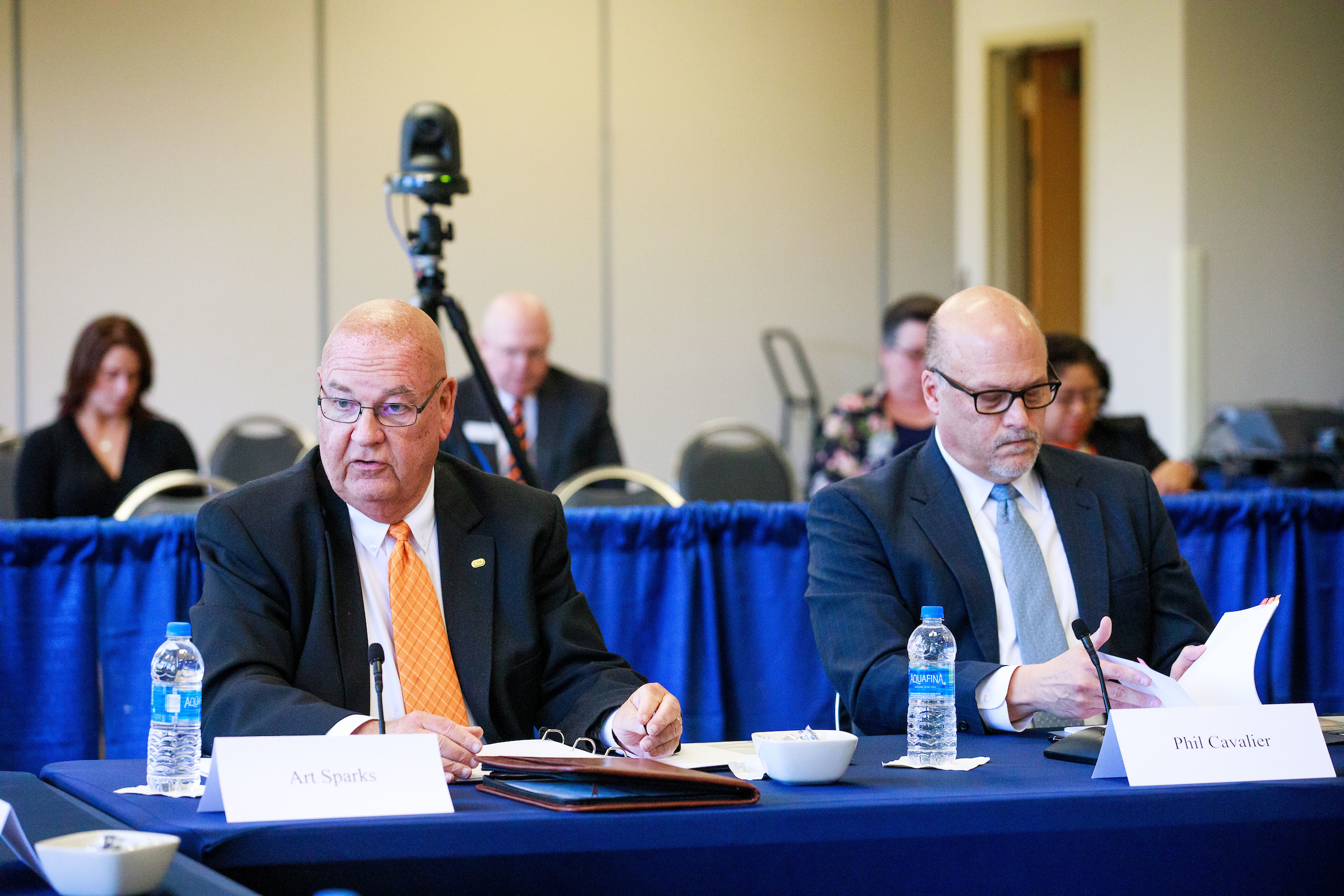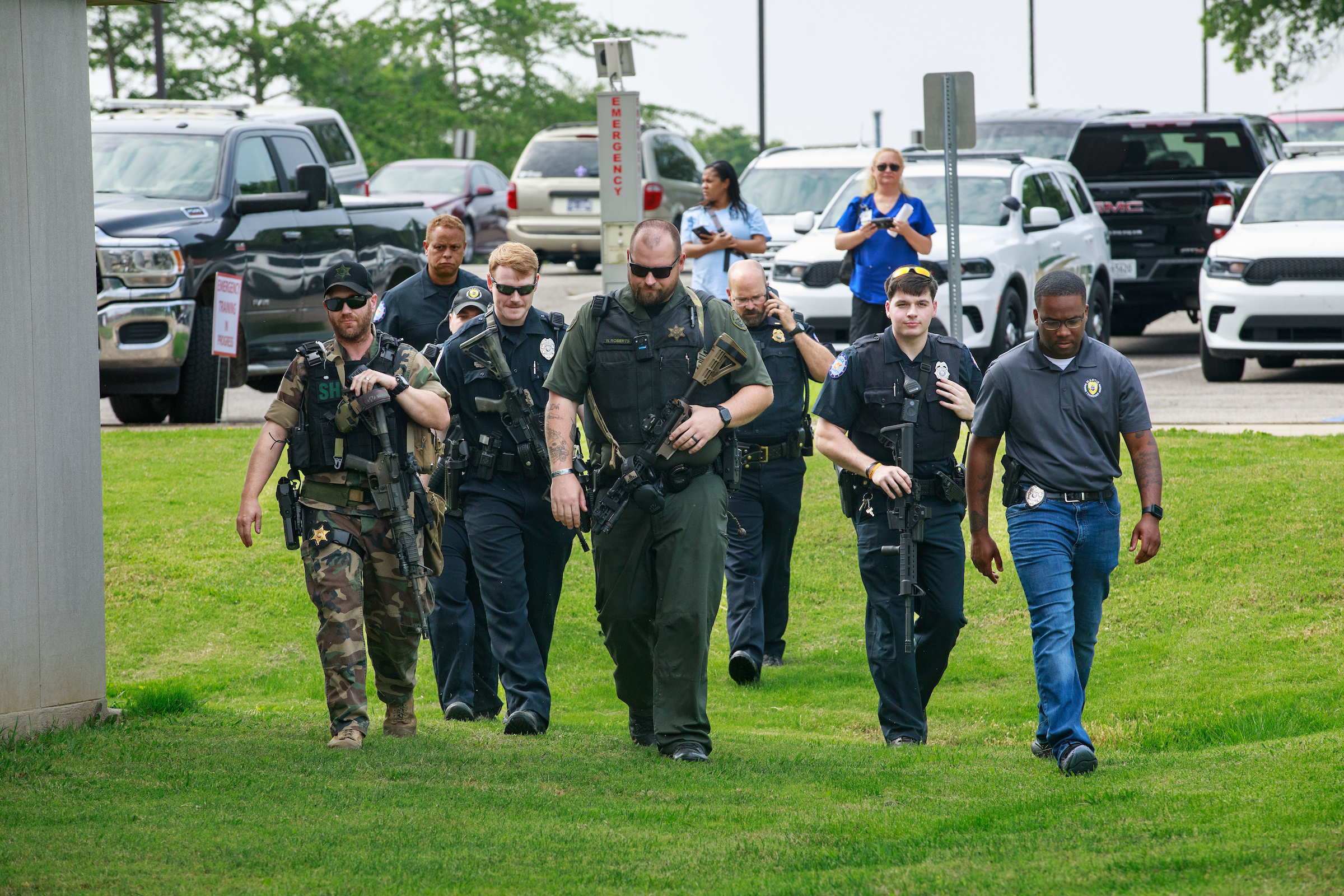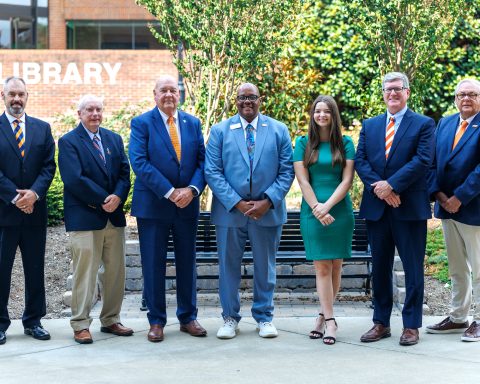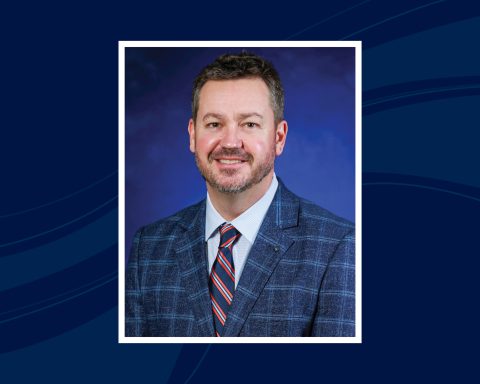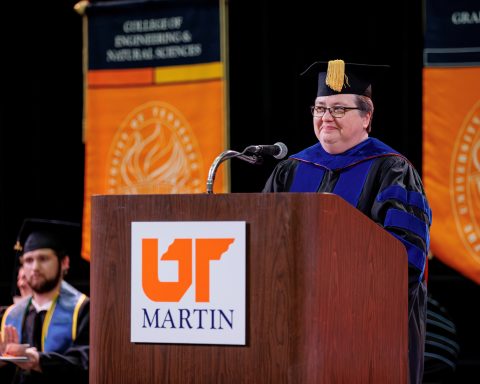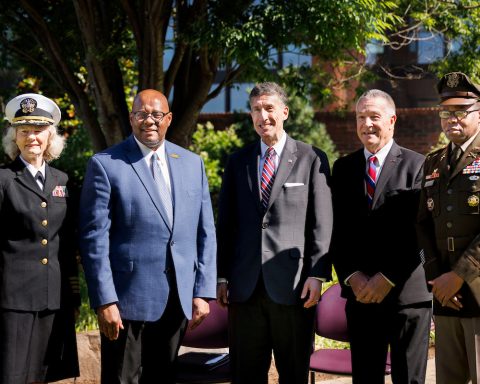A 3% overall increase in tuition and mandatory fees, which includes a 2% tuition increase, was part of the University of Tennessee at Martin’s proposed 2023-24 budget that was approved by the UT Martin Advisory Board during its summer meeting May 26 in the Ed and Carolyn Boling University Center. The proposed budget next goes to the UT Board of Trustees for consideration at the board’s annual meeting June 29-30 at the UT Health Science Center in Memphis.
Petra McPhearson, senior vice chancellor for finance and administration, presented a UT Martin budget overview including the proposed increases that would begin with the 2023-24 academic year if approved by the UT board. Budget recommendations are based on comparisons with both peer and aspirational peer institutions. The proposed tuition and fee increases would set the cost for instate undergraduate students to attend the university at $10,208 per semester and $11,112 per semester for graduate students. Costs for out-of-state students would also rise in line with instate percentage increases.
In addition to recommending the tuition and fee increases to the UT Board of Trustees, the advisory board also recommended approval of the university’s total operating budget proposal of $165,881,356. The operating budget includes tuition and fees ($66.7 million), state appropriations ($46.1 million), grants and contracts ($.2 million), and sales and service ($.6 million).
In other meeting highlights and related business:
•Dr. Stephanie Kolitsch, the university’s interim provost and senior vice chancellor for academic affairs, reported a successful accreditation visit Feb. 28-March 2 by the Southern Association of Colleges and Schools Commission on Colleges, the university’s primary accrediting agency. Kolitsch said the visit included no findings on the Compliance Certification Report standards, which is the major report reviewed by the team. The university’s response report to other onsite committee recommendations will be submitted, and a final accreditation decision will be announced Dec. 5, 2023, by SACSCOC.
Kolitsch also previewed a new Master of Music in Music Education program scheduled for final review this summer by the Tennessee Higher Education Commission and pending final approval by SACSCOC. Marketing for the program can begin while final program reviews are made.
•Dr. Brad Baumgardner, director of retention, reported ongoing progress with student persistence and retention. Persistence is typically measured fall to spring and includes students continuously enrolled or graduated. The university’s fall 2022 to spring 2023 full-time freshman persistence is 89.25%, which is up 2.86 points from 2022.
Retention is measured fall to fall and includes students continuously enrolled or graduated. Although projected numbers are subject to change, Baumgardner reported as of May 11 that the university’s retention stood at 73.3%, which is up from 71.1% full-time freshman retention compared to fall 2022 final enrollment.
•Dr. Charley Deal, vice chancellor for university advancement, announced that the university has officially surpassed its fundraising goal in the RISE Campaign. The campaign, only the fourth in UT Martin history, includes gifts from 2017-2023 and officially ends June 30. As of May 15, the campaign has exceeded its $175 million goal by raising $176,441,620. The total, which is projected to increase until the campaign concludes, includes the Wildwood Farm commitment in Shelby County valued at more than $79.5 million. The commitment in 2021 by Melanie Smith Taylor and her family is the largest commitment in UT Martin and UT System history.
Dr. Philip Acree Cavalier, interim UT Martin chancellor, offered final comments and reported that UT Martin remains a healthy institution as measured by budget, enrollment, accreditation and donor engagement, all covered in the meeting’s reports. He also pointed to success in athletics both in competition and in the classroom, a waitlist for university housing, which indicates a favorable outlook for fall enrollment, and $34 million raised in student aid that allows the university to assist more students.
Cavalier also highlighted the university’s work with BlueOval City and Ford to hold workshops for K-12 teachers in West Tennessee. The hands-on workshops, made possible by a Ford grant, are designed to help teachers “understand the kind of manufacturing that’s going to go on in the BlueOval City campus.” He added that Ford is also considering the UT Martin Somerville Center as a site for employee training and onboarding.
He closed by noting another partnership developing with Vol State Community College at its Springfield campus in Roberson County north of Nashville. Vol State is seeking a partner to offer four-year degrees at that location and is interested in UT Martin’s agriculture programs.
Art Sparks, of Union City, chairs the seven-member board, which approved Dr. Clinton Smith, professor of special education and Department of Educational Studies chair, and Taylor Cantrell, a sophomore veterinary science and technology major from Newbern, as the new faculty and student representatives respectively. Smith succeeds Dr. Anderson Starling, interim associate provost and associate professor of political science, and Cantrell succeeds Iman Ahmed, a senior political science major from Cordova. The remaining board members are Hal Bynum, Sharon; Monice Hagler, Memphis; Julia Wells, Jackson; and Johnny Woolfolk, Madison County.
The full agenda and associated meeting materials for the May 26 meeting are available at www.utm.edu/offices-and-services/ut-martin-advisory-board/. The full archived meeting is available to view at www.utm.edu/abmeeting.
###

